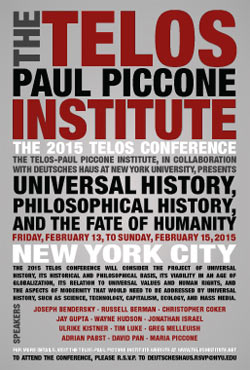 The aim of this short paper is to offer a critical response to Philippe Van Parijs concerning his notion of linguistic justice as worked out most extensively in his book Linguistic Justice for Europe and for the World (2011). I thus begin by elucidating his conception of linguistic justice by presenting two basic theses on which it rests: first, he attempts to demonstrate the need for a lingua franca in the “globalized” (or rather “globalizing”) world today (i.e., advocating a common language for the entire world); and second, he seeks to justify the exceptional and unprecedented position the English language is now in to serve as the de facto lingua franca for this globalizing world. Given the general theme of history for this conference, I shall present Van Parijs’ thoughts with a particular focus on its historical aspects and implications. Accordingly, the first part of my discussion will center on the idea of lingua franca in relation to history. As a critical response to Van Parijs’ view, I subsequently take up the question of translation and discuss in the second part the significant role translation can and must play in our contemporary, multilingual world. Such an analysis will be carried out by examining some of the important contributions made in the hermeneutic tradition on the question of translation. In particular, the works of George Steiner, John Sallis, and Paul Ricoeur will be considered. By doing so, I wish to demonstrate in this paper that it is not English as the lingua franca that serves linguistic justice, but rather our openness to translation that must be seen as a fundamental principle of linguistic justice.
The aim of this short paper is to offer a critical response to Philippe Van Parijs concerning his notion of linguistic justice as worked out most extensively in his book Linguistic Justice for Europe and for the World (2011). I thus begin by elucidating his conception of linguistic justice by presenting two basic theses on which it rests: first, he attempts to demonstrate the need for a lingua franca in the “globalized” (or rather “globalizing”) world today (i.e., advocating a common language for the entire world); and second, he seeks to justify the exceptional and unprecedented position the English language is now in to serve as the de facto lingua franca for this globalizing world. Given the general theme of history for this conference, I shall present Van Parijs’ thoughts with a particular focus on its historical aspects and implications. Accordingly, the first part of my discussion will center on the idea of lingua franca in relation to history. As a critical response to Van Parijs’ view, I subsequently take up the question of translation and discuss in the second part the significant role translation can and must play in our contemporary, multilingual world. Such an analysis will be carried out by examining some of the important contributions made in the hermeneutic tradition on the question of translation. In particular, the works of George Steiner, John Sallis, and Paul Ricoeur will be considered. By doing so, I wish to demonstrate in this paper that it is not English as the lingua franca that serves linguistic justice, but rather our openness to translation that must be seen as a fundamental principle of linguistic justice.
|
|
||||
|
Telos Press Publishing · PO Box 811 · Candor, NY 13743 · Phone: 212-228-6479 Privacy Policy · Data Protection Copyright © 2024 Telos Press Publishing · All Rights Reserved |
||||







